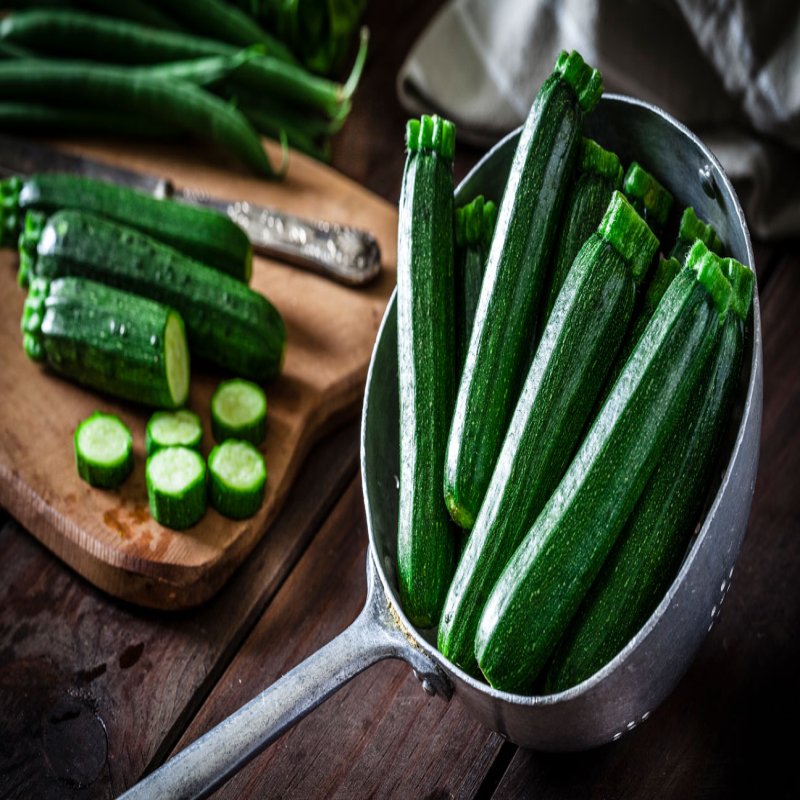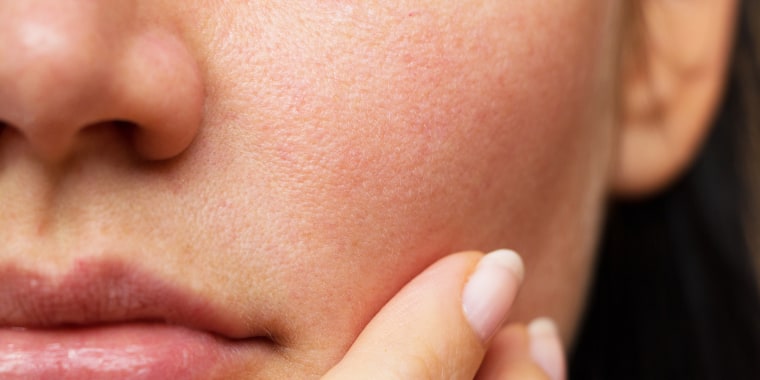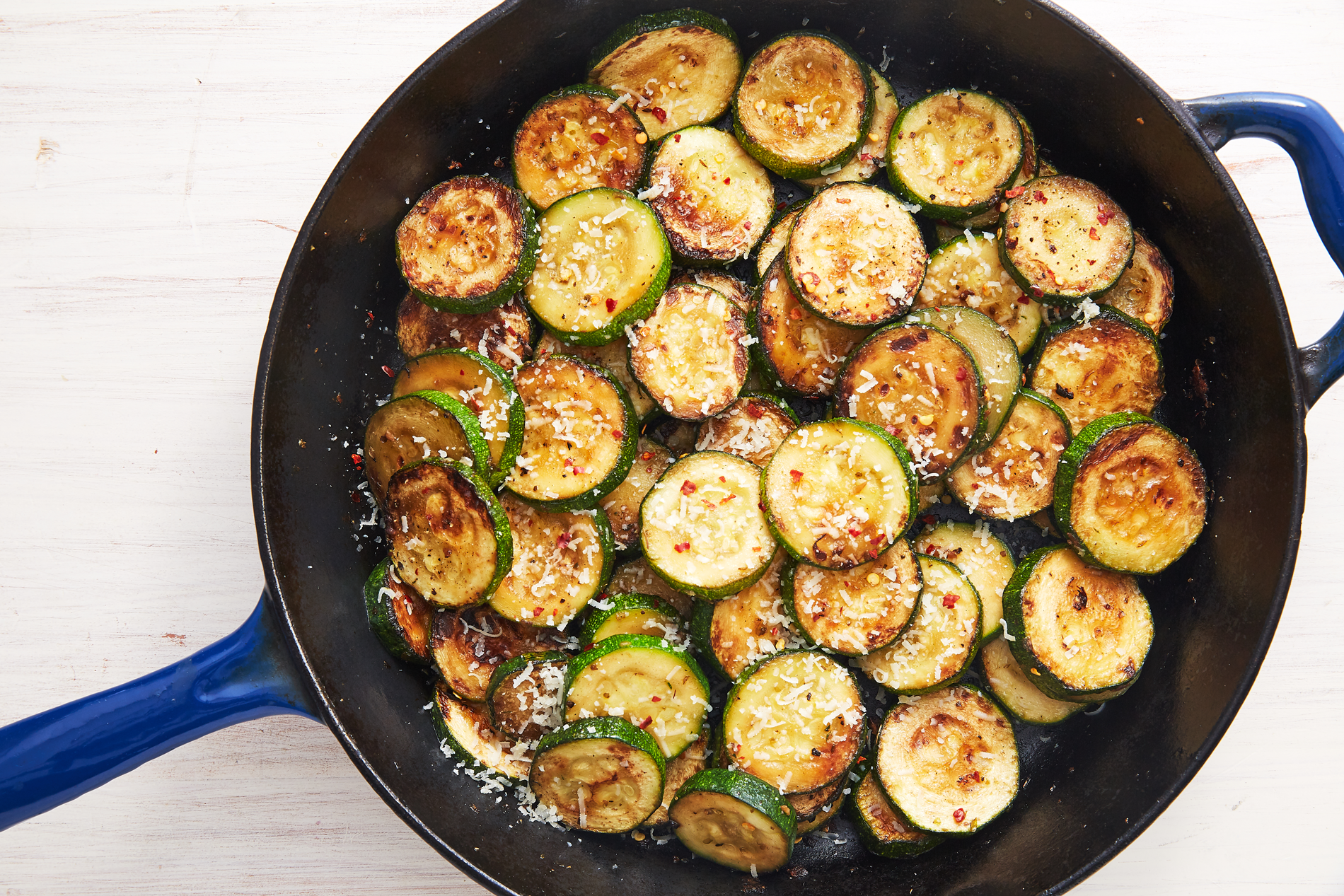
You would have heard it a million times—it's critical to stay hydrated, especially in the summer. Even more so if you are exercising outside! Zucchini can be your perfect summer food. Zucchini, also known as summer squash, is 95% water that hydrates your body (and the skin) and helps you tackle the summer heat. Apart from this, zucchini also offers several health benefits.
Read on to know more!
Zucchini, also called courgette, has its origins in America and is available in yellow, light green, and green colors. Zucchini comes in numerous varieties. A few of the popular ones are Aristocrat, Gold Rush, Black Zucchini, Embassy, Sweet Gourmet, and Zucchini Gadzukes.
– 100 g of zucchini contains just 17 calories
– Zucchini contains more potassium than a banana
– The flower of the zucchini plant is edible
– Botanically, zucchinis are fruits but in the culinary context, they are vegetables
Zucchini belongs to the species Cucurbita pepo, which includes pumpkins and cucumbers. Zucchini is best eaten prior to the skin becoming tough and the seeds growing large. The flowers of the zucchini plant are used regularly in French and Italian cuisine for garnishing meals and enhancing flavors. Today, it is grown year-round, and you can eat it raw, sliced, or in cooked form.

Health Benefits of Zucchini
Zucchini is a rich source of manganese and vitamin C. It is also the best source of dietary fiber. It contains vitamin A, vitamin B1, vitamin B6, vitamin B2, calcium, magnesium, potassium, copper, and phosphorus. Zucchini also has a high content of omega-3 fatty acids, zinc, niacin, and protein. With a high water percentage (95%), zucchini is probably the best squash, having an array of nutrients, including sugar, carbohydrates, soluble and insoluble fiber, sodium, minerals, amino acids, and more.
Zucchini is also rich in folate which is highly recommended for women during pregnancy. Zucchini is rich in a variety of flavonoids and antioxidants (lutein, carotenes, and zeaxanthin) too.
Maintains Heart Health
It is an excellent source of potassium, which is a heart-friendly electrolyte that controls blood pressure by countering the pressure effects of sodium. This property of zucchini makes it a prominent part of the DASH (Dietary Approaches to Stop Hypertension) diet.

Improves Vision
Lutein and zeaxanthin, two important phytonutrients present in zucchini, promote healthy eyesight. They filter light rays as they enter your eyes protecting them against damage caused by harmful UV radiation.

Keeps Skin Hydrated
When the skin is exposed to sunlight, lutein in zucchini reduces the inflammation response. This means the sunlight will cause less damage to the skin, and that means less damage to the moisture barrier of the skin as well. And the result is well-hydrated skin. However, the food you eat fulfills only about 20% of your daily water intake. Hence, it is important that you drink 8–10 glasses of water every day because the skin cells need water to function at their best.

Prevents Neural Tube Defects
Courgette or Zucchini contains relatively moderate amounts of folate. Folate is important in cell division and DNA synthesis. Adequate consumption during early pregnancy can help prevent neural tube defects in the fetus. Neural tube defects are birth defects of the brain, spine, or spinal cord. They occur during the first month of pregnancy.

Promotes Weight Loss
Consuming zucchini will help you lose weight considerably because it is extremely low in calories. It also has high water content and is rich in fiber. Therefore, it becomes a great ingredient to satisfy your appetite without consuming too many calories or starting a crash diet plan.

Slows Down Aging
Zucchinis, especially golden skin varieties, are rich in flavonoids and antioxidants such as carotenes, lutein, and zeaxanthin. These compounds help scavenge harmful free radicals and Reactive Oxygen Species (ROS) present in the body. ROS, when accumulated over time in the body due to environmental stress factors such as UV radiation or pollution, can accelerate the process of skin aging and lead to other diseases such as cancer, atherosclerosis, and diabetes.

How to Include Zucchini in your Diet?
To add more volume to your meals with little extra calories, you can use zucchini in a variety of different cuisines and recipes: a healthy raw snack, dip, or side dish. Zucchini is easily incorporated with different flavors and spices due to its mild flavor.

You can enjoy zucchini, both raw and grilled, in a variety of dishes. Served raw, sliced zucchini pairs well with nutritious dips, while the squash’s mild flavor also blends well into fruit and vegetable smoothies. Grill your zucchini with healthy flavorings, such as extra virgin olive oil, pepper, and a small amount of salt. Alternatively, spice your grilled zucchini by seasoning it with red pepper flakes, or marinate your zucchini in balsamic vinegar before grilling. If you’re bored with the thought of eating grilled zucchini on its own, use the cooked squash as a salad topper, or add the zucchini to a sandwich or wrap.

As you know, eating enough fruits and vegetables is important, so if you include zucchini in your diet, you are actually keeping your body healthy, well-hydrated, and toxin-free in the long run. It is undoubtedly one of the healthiest food choices, and it is easy to consume in many different and delicious ways.
Disclaimer –Zucchini has oxalates, compounds that naturally occur in our body and tend to crystallize when present in excess amounts. Individuals with kidney and gallbladder disorders must consult with their doctors prior to incorporating zucchini into their diet to avoid aggravating their respective medical conditions.
Nutrition Information
100g of Zucchini provides 17 Calories, Carbs – 3.1g (Dietary Fiber – 1g, Sugar – 2.5g), Protein – 1.2g, Fat – 0.3g (saturated fat – 0.1g), Sodium – 8mg
And a percentage daily value of Vitamin A – 4%, Vitamin C – 30%, Iron – 2%, Calcium – 2% (based on a 2000- Calorie diet).


.png)


